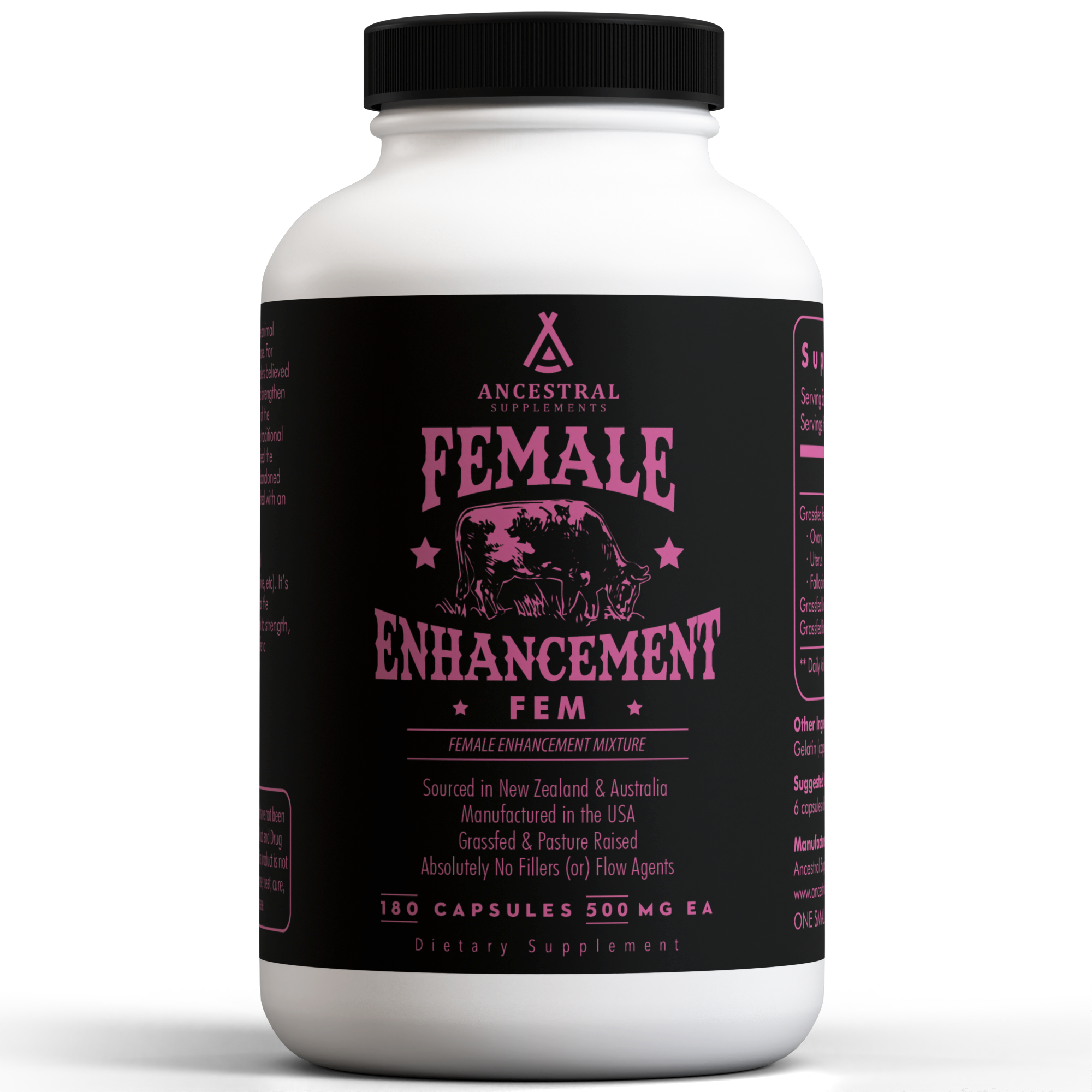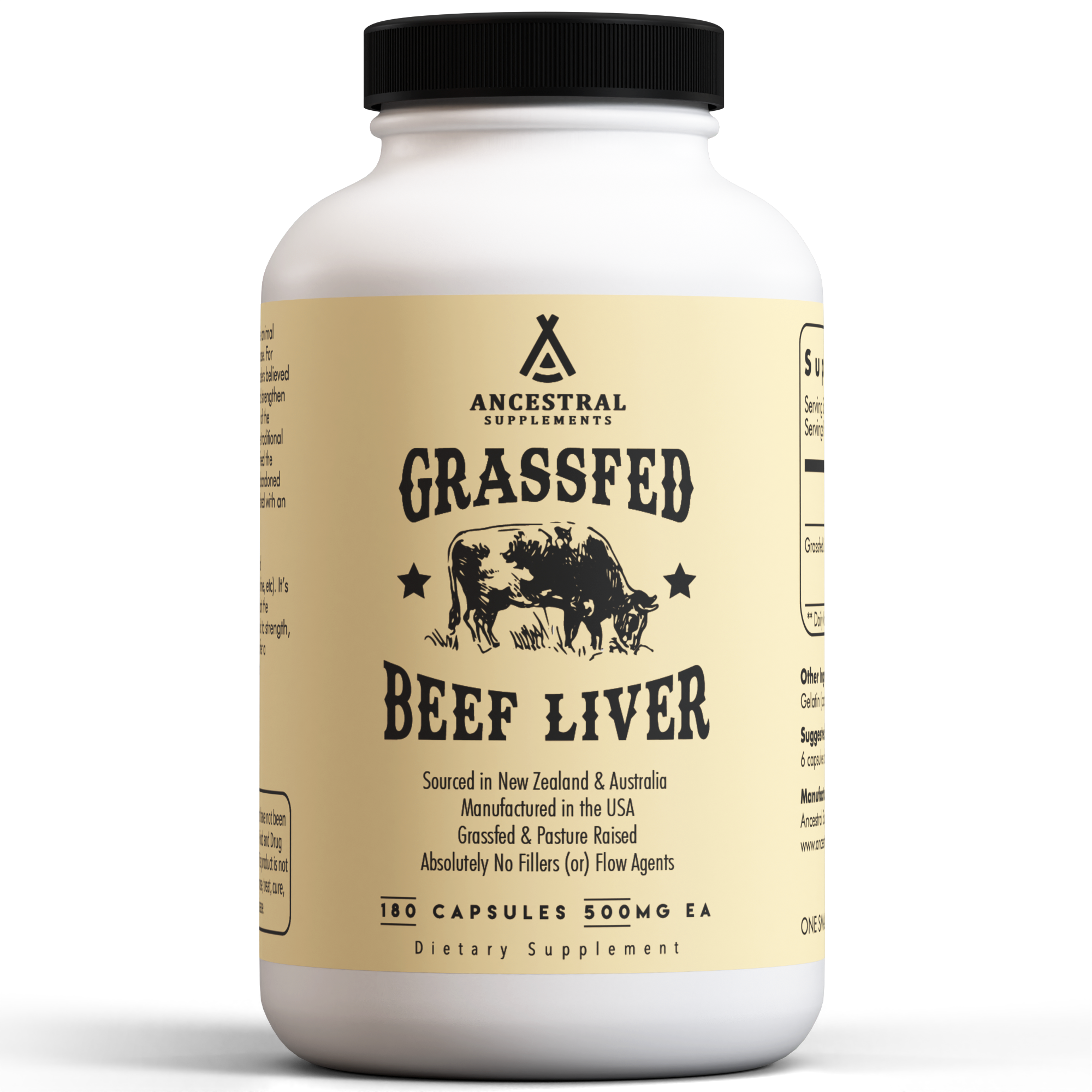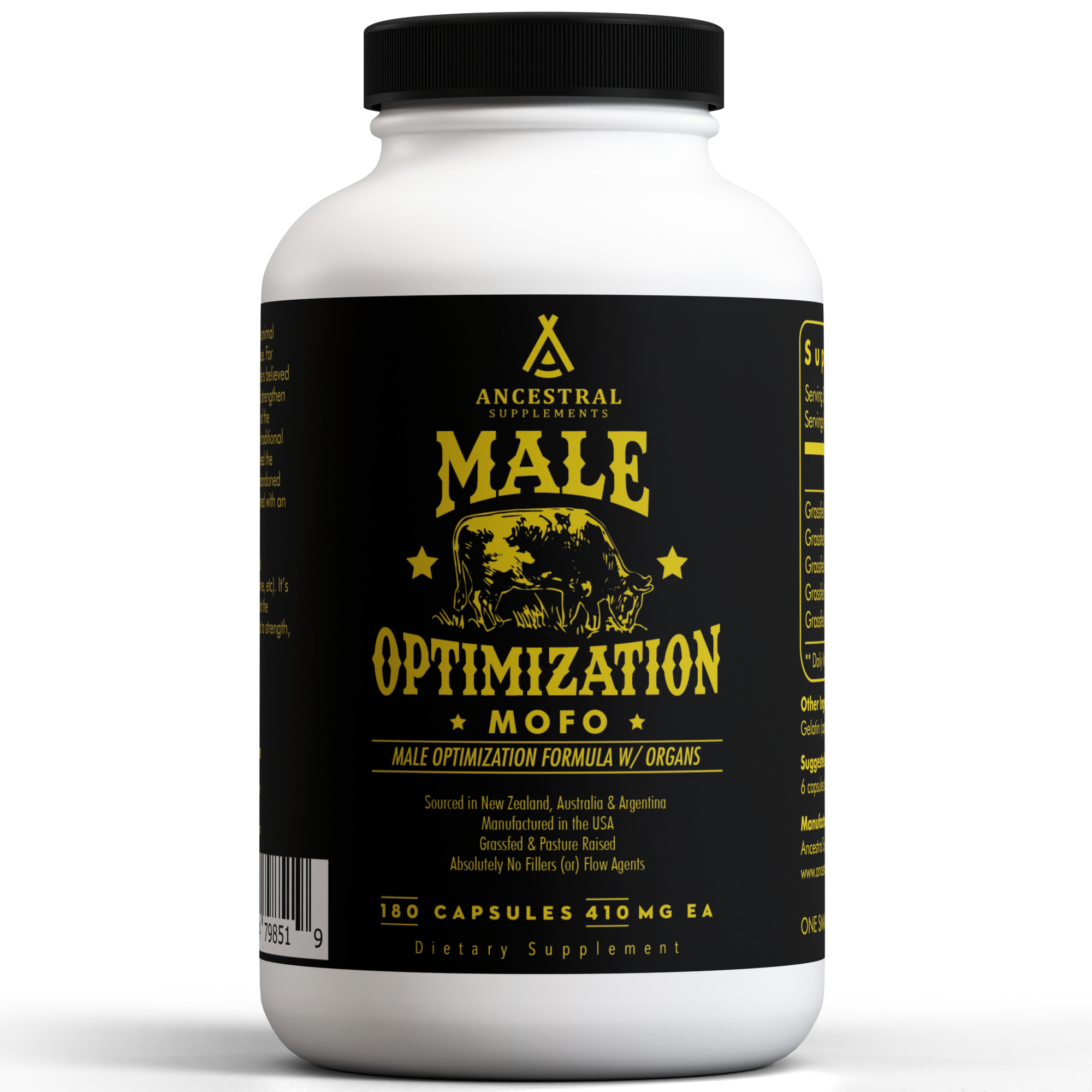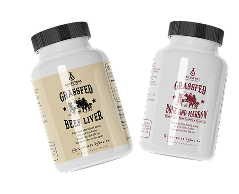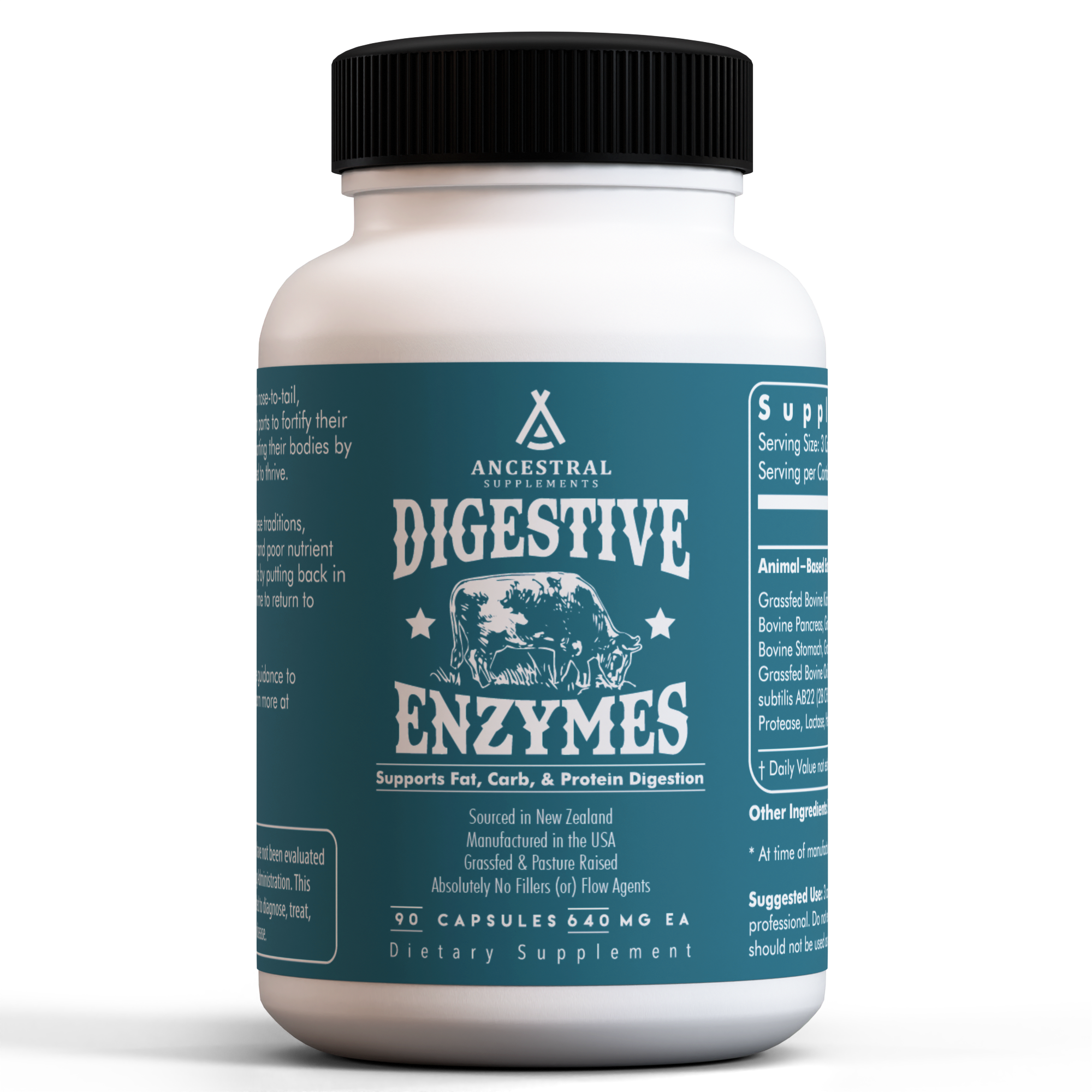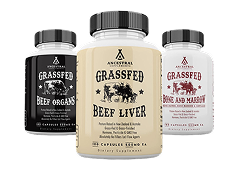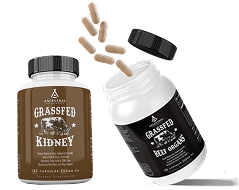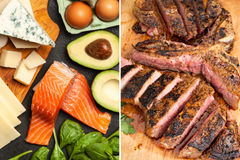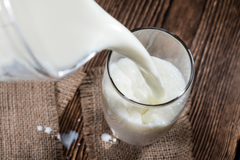Can You Have Honey on the Carnivore Diet?

You’ve ditched the veggies, skipped the sauces, are off of all desserts, and are fully committed to meat and animal-based eating. But then a question hits: Is honey carnivore-approved?
Honey can be confusing, considering it is a natural product that does have certain health benefits. With some carnivore diet influencers might drizzle raw honey over their steak or blend it into their raw milk, it's not always clear where honey stands when going carnivore.
In this article, we’ll break down what the carnivore diet really entails, whether honey fits into it (short answer: no), and why some people choose to experiment with it anyway. Plus, we’ll give you the definitive carnivore food list that is allowed, and what to do when you crave something sweet while eating very low (or no) carb.
What Is the Carnivore Diet?
The carnivore diet is exactly what it sounds like: an all-animal-food eating plan. That means meat, fish, eggs, and animal fats are in, while plants, fruits, grains, and all types of sugars, usually including honey, are strictly out.
At its core, this diet is rooted in the idea that animal foods are the most nutrient-dense and least inflammatory.
It's thought that this is especially true for people dealing with autoimmune conditions, gut issues, or blood sugar problems, in which case all types of sugars, carbs, and fibers can be hard to digest properly and may worsen symptoms.
Here are the foods that most strict carnivore dieters stick to (you'll notice sweeteners of all types don't make the cut):
-
Red meat (beef, lamb, bison, venison)
-
Poultry
-
Fish and shellfish
-
Organ meats (like liver, kidney, and pancreas)
-
Eggs
-
Animal fats (like tallow, butter, and suet)
-
Salt
-
Water
The Short Answer: Is Honey Allowed on Carnivore?
No, honey is not considered carnivore-compliant.
While honey is made by bees from plant nectar, it’s technically a plant-derived sugar.
Even though it’s “real” and unprocessed in its raw form, honey still contains 17 grams of carbohydrates per tablespoon, nearly all from carbohydrates, mostly fructose and glucose. That's the same amount of sugar as many sweetened yogurts, some juices, cereals, and even certain desserts.
That makes honey a no-go on most versions of the carnivore diet, which is intended to be very low or free of carbs and sugar—and only made up of animal-based foods.
However, there’s some nuance and debate in the community regarding whether or not to include honey in the diet. Among those who follow animal-based diets, rather than strict carnivore diets, small amounts of honey may be included.
Why Honey Doesn’t Fit the Carnivore Diet
Let’s break down the main reasons honey is excluded from the carnivore diet (for most people):
1. It’s Plant-Based
Bees collect nectar from flowers, which means honey is technically a processed plant product, not an animal food.
2. It's High in Carbohydrates
Just one tablespoon of honey contains 17 grams of sugar and 17 grams of carbohydrates—with no fat, fiber, or protein—which can quickly kick you out of ketosis and spike your blood sugar.
3. It's Mostly a Type of Sugar
Honey is roughly half fructose and half glucose, depending on the specific type. These are two types of sugar that can stimulate the release of insulin and can potentially drive cravings for more sweets.
4. Not Inflammatory for All, But Risky for Some
If you're eating carnivore to manage inflammation, blood sugar, or gut issues, honey might trigger your symptoms, worsen them, or cause energy crashes.
While this isn't the case for everyone (because people have different tolerances for sugar), honey’s fructose content can feed imbalanced gut bacteria or yeast, such as in people with dysbiosis, potentially contributing to issues like bloating, fatigue, or skin inflammation and breakouts. This is called fructose malabsorption, which is thought to be common in people with IBS.
5. Doesn't Fit with the Carnivore Diet Being Elimination-Based
Many follow a carnivore diet as a therapeutic elimination diet, so even natural sugars like honey are off the table during the healing phase. While honey might be a "healthier" sweetener than processed white sugar, it still has an impact on blood sugar levels, gut health, and other aspects of health.
The “Raw Honey Exception” Debate
All of that said, some carnivore followers do include small amounts of raw honey, for example, if they’ve transitioned into a more flexible “animal-based” diet like a modified carnivore diet.
Here’s why, in their opinions, a bit of raw honey can be okay in small amounts:
-
It's raw and unprocessed: Proponents argue that raw honey, in moderation, is less inflammatory than processed sweeteners like white sugar (cane sugar). Honey has a lower glycemic index score than sugar, but it's ultimately still pretty high.
-
It does provide certain nutrients: Raw honey is a good source of enzymes and nutrients like amino acids, B vitamins (especially B2 and B6), vitamin C, calcium, magnesium, potassium, and zinc. While the amounts are relatively small, these nutrients—along with honey’s naturally occurring antioxidants and antimicrobial compounds—are part of what gives raw honey its traditional use in natural healing.
-
It has a long history of traditional uses: Some indigenous cultures consumed local honey seasonally, often paired with animal foods like meat or dairy. Honey has ancestral roots in many cultures as a natural antimicrobial used for respiratory and skin support.
-
It may help boost performance: Athletes or people who are very active might use small amounts of honey pre-workout for quick fuel. Since it contains carbs, it can help provide a fast source of energy for muscles, which might translate to greater stamina or output.
Something important to note here: Even these advocates agree that honey is best used in small amounts, and it is not necessarily the best idea for carnivore diet beginners who are adapting to eating zero carbs and sugar. It's also definitely not part of a strict carnivore elimination phase, which includes zero sugar, fiber, or carbohydrates (no plant foods at all).
Carnivore-Approved Sweetening Alternatives
So what if you want something sweet, such as dessert while on the carnivore diet, but want to stay in low-carb territory?
The truth? Less is more. The best “sweetener” on carnivore (or the ketovore diet) is time—because your taste buds and brain will adapt to eating less sugar.
Still, here are some things to consider:
- No sugar is best: Most strict carnivores avoid all sweet tastes to fully break sugar addiction. This might sound very tough, and it can be hard at first. But with some patience, you'll get used to eating less carbs and will feel more satisfied from animal-derived foods. When you switch to carnivore diet macros, meaning high protein and fat intake, you should naturally be less hungry and less likely to crave sugar.
-
Animal-based substitutes can come in handy: Can you have milk on the carnivore diet? In some cases, yes. Small amounts of milk (especially raw, whole milk, or cream) can often help satisfy sweet cravings due to natural lactose. You can try making no-sugar-added whipped cream with vanilla extract, for example.
-
Fat bombs are a satisfying treat: Mixing butter, tallow, or egg yolks into broths or drinks can feel like you're eating a comforting treat. For a carnivore-approved breakfast, you can also try having something like eggs with coffee with collagen powder, a touch of cream, and a dash of cinnamon.
-
Give it time: Most people report that their cravings fade within two to four weeks of carnivore eating.
What Happens If You Eat Honey on the Carnivore Diet?
If you do experiment with honey, especially early on, here’s what you might notice:
-
Digestive upset: Bloating, gas, or diarrhea are common in people who are no longer used to processing sugars.
-
Blood sugar spikes and dips: Even a little honey can cause crashes in your energy or mood, especially if you’re very carb-sensitive. This is why it's wise to introduce honey very slowly, so you're not hit with a big sugar crash all of a sudden.
-
Cravings for sweets return: For those detoxing from sugar, honey might reignite the desire for sweets, desserts, and processed carbs. If this is one of the main reasons you chose to follow the carnivore diet, be careful about consuming honey.
-
Individual reactions: Some people do fine with honey, but for others, it can cause autoimmune flares or gut issues.
Carnivore Diet Food List (The Strict Version)
Here’s a carnivore diet food list, which tells you what you can confidently eat on a strict carnivore protocol:
Animal Proteins:
-
Beef (steaks, ground beef, ribs, etc.)
-
Organ meats, including beef liver, kidneys, heart, spleen, pancreas, etc.
-
Lamb
-
Bison
-
Pork
-
Chicken, duck liver, and other chicken organ meats
-
Turkey
-
Duck
-
Eggs
-
Dairy (in small amounts), like full-fat cream, aged cheese, or whole milk (such as A2 milk or goat milk)
Fish & Seafood:
-
Salmon
-
Sardines
-
Mackerel
-
Tuna
-
Shrimp
-
Scallops
Fats:
-
Tallow
-
Suet
-
Butter
-
Ghee
-
Bone marrow
Extras (for some):
-
Water
-
Collagen or gelatin powder
-
Bone broth
-
Salt
-
Spices like cinnamon, turmeric, etc.
-
Tea and black coffee (not technically carnivore, but coffee is often included)
Tip: If you're following a zero-carb diet and want to be sure you're consuming all the essential nutrients you need, consider supplementing to fill in the gaps. For example, the Ancestral Starter Pack—which features our grass-fed liver capsules, organ blend multivitamin, and bone marrow capsules—is a great way to obtain nutrients that will help lift our energy, strengthen muscles and bones, restore tissues, and elevate immunity.
Conclusion: Is Honey Carnivore?
No, honey is not technically carnivore. It’s made from nectar, packed with sugar, and not animal-derived (since it technically partially comes from plants).
While some choose to include raw honey on an animal-based or performance-focused diet, it doesn’t fit the core principles of a strict carnivore diet. If you’re using the diet to reduce inflammation, manage autoimmune symptoms, or stabilize blood sugar, be careful about including honey. But ultimately, how you personalize your diet is up to you.

